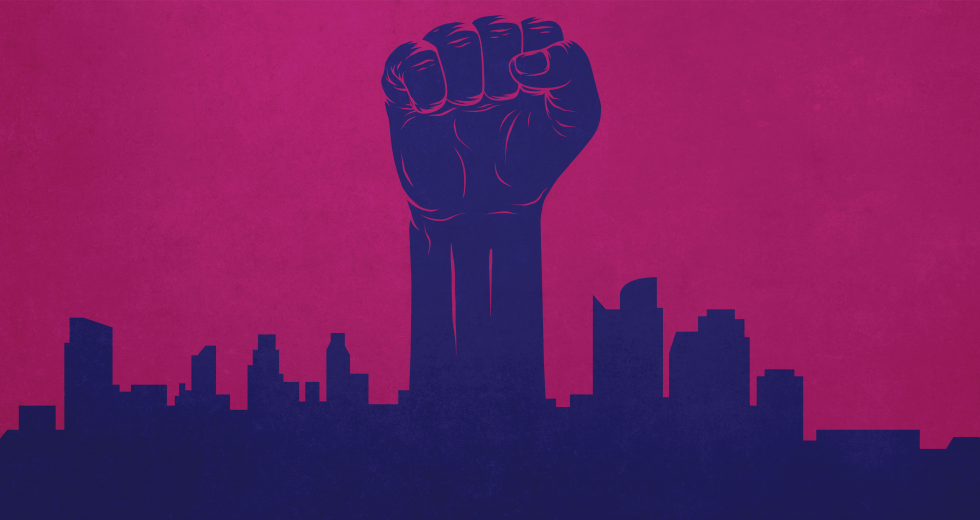The idea of Sacramento adopting the so-called “strong mayor” system of city government is dead. It’s kaput. If this was baseball, it was out on strikes even before voters threw another heater past Mayor Kevin Johnson’s fourth attempt at it in 2014. It’s an airball from the corner, a flop that would make Vlade Divac proud. It’s done.
Or maybe it’s not.
For the uninitiated, the strong mayor proposal was Johnson’s brainchild. Technically known as the executive mayor system, it would have given the mayor’s office a wealth of new powers, including the ability to choose a city manager, propose a city budget and veto some city council decisions. Think big, robust cities like San Francisco, Los Angeles, San Jose, Oakland and even Fresno.
But while Sacramento is the capital of the state with the eighth-largest economy on Earth, that’s exactly the opposite of how things are now. City Manager John Shirey makes most of the big decisions on hiring and firing city personnel and making sure the council’s wishes get implemented. The mayor can certainly be influential but is ultimately just one vote on the nine-member council. Kind of like Bakersfield. Let that sink in for a moment.
To the surprise of nobody who knows him, Johnson was never a fan of such limited mayoral powers. But his much-too-soon effort to change the system — which started about five minutes after being sworn in in 2008 — died when a court tossed his ballot measure, saying only the council could put such a thing before voters. So in 2010 Johnson asked them to do just that. They refused. He asked again in 2012; they said no again. After some shuffling of members, the council finally endorsed it in 2014, only to see it get shellacked at the polls.
Although supporters pitched it as a way for bringing Sacramento into the big time and making the mayor more accountable to voters, opponents effectively made it a referendum on Johnson himself. Strong mayor, they said, was nothing but a power grab that would leave voters out in the cold.
“It was all about personality, not policy,” says political media relations expert Steve Maviglio, CEO of Forza Communications and one of Johnson’s advisers. “It was less about strong mayor and more about Kevin Johnson.”
For all of his native son cachet, the electorate never warmed to the idea of giving Johnson that kind of oomph. By the time the proposal got to voters, it had the backing of most of the council and the glitterati of Sacramento’s business community, but it was still as dead as a skunk laid flat in the road.
So then it’s a done deal, right? Maybe, maybe not. Given how the rejection was seen as a repudiation of Johnson as much as of the strong mayor concept, wouldn’t a new mayor — say, a popular figure like Darrell Steinberg — put it into a whole new light? Here’s where it gets dicey.
“The answer is no,” says Doug Elmets, a highly respected political consultant and president of Elmets Communications. “The voters have spoken loudly and clearly on this issue. They have no appetite for it, and Darrell Steinberg is not going to put them through this again.”
Former Assemblyman and Sacramento Metro Chamber CEO Roger Niello supports the strong mayor concept, but agrees it is too soon to bring it up again, particularly with the city looking for a replacement for Shirey, who is retiring in November.
“It would certainly be a different conversation with a different mayor,” he says. “But I think it’s definitely better for it to be a dead issue now because it puts too much instability into the search for a new city manager.”
Maviglio, however, is less circumspect about Steinberg’s influence.
“If it was Darrell, it would pass easily,” he says, though he sees it as something better suited for a re-election campaign.
That still might be too soon for voters, says political consultant David Townsend, who ran both of Johnson’s mayoral campaigns and the strong mayor ballot initiative. Even so, he says it is just a matter of time before Sacramento is a strong mayor city.
“Sacramento is really divided by age,” he says. “People over 45 strongly favored the current system and those under 45 strongly support changing it.”
That applies to issues well beyond the mayor’s office, he says, an indication of how differently the younger generation sees the role of government and the kind of city they want to live in. He doesn’t see the next mayor pushing the issue until perhaps they are on the way out of office, but he has no doubt that younger voters will drive that change within the next decade.
“Look at how different the downtown is now,” Townsend says. “Young people want to see the city continue to grow as a vibrant place to live and work. They are not going to be content with the status quo, with just doing nothing.”



